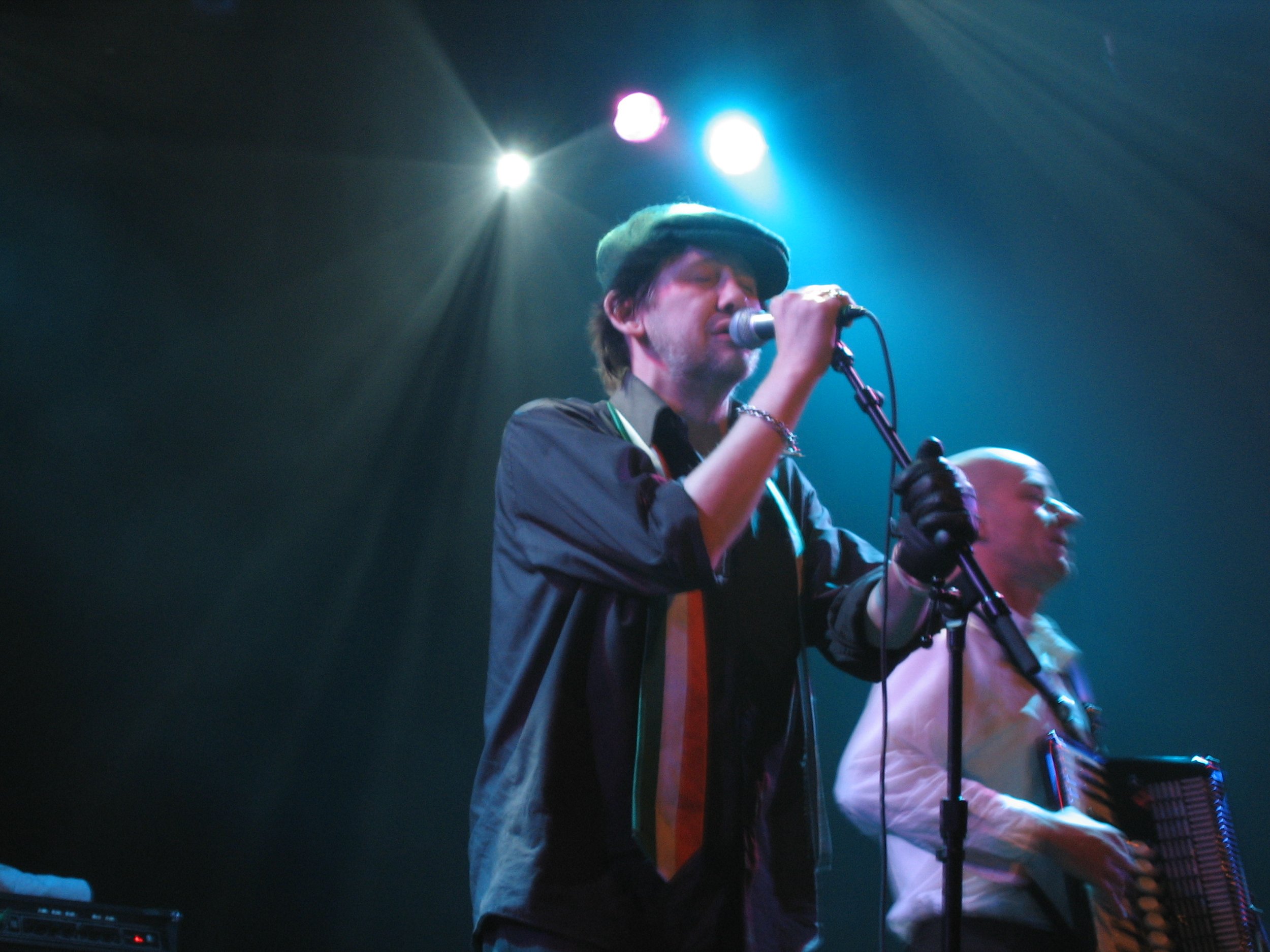Pogues Frontman Shane MacGowan And His Sense Of The Supernatural
Wikipedia Commons photo
When the legendary Pogues frontman died on Nov. 30, his wife Victoria’s Instagram contained some surprises. He had gone, she said, to be with “Jesus and Mary.” During a stint of poor health in late 2022, she had requested prayers for him over a photo of MacGowan wearing a large gold crucifix. Prior to that he was quoted as saying that if he ever managed to avoid hospital he would “thank Jesus and his holy mother and all the saints and angels.”
MacGowan rarely attended Mass, but his home was full of religious icons. He also prayed and enjoyed regular visits from a Catholic priest. He even said he would be happy to sing for the pope — although an invitation was never forthcoming.
In a statement released by his family after his death, it was confirmed that MacGowan had received last rites. It was an unusual stance for an ex-punk, not least one descended from Ireland, where the Catholic Church’s PR crisis has been lengthy and profound.
READ: Ukrainian Artists Display Resilience And Faith
The fact that MacGowan even had any sense of the supernatural will come as a surprise to some. In all the potted obituaries written since his death, it’s often mentioned as a one-sentence afterthought, if at all. His struggles with substance abuse and regular fallings out with his bandmates get more column inches.
Yet one of the most enduring myths of rock and roll is that it is fundamentally godless. While MacGowan’s Irish literary heroes, including Seamus Heaney and James Joyce, pulled away from the church, musical contemporaries such as U2, Sinead O’Connor and even Van Morrison didn’t shy away from singing about God, even in a veiled form.
As a child, MacGowan was raised in a devoutly Catholic household. In Tipperary, Ireland, he would attend Mass every day with his aunts and gather in the evenings with them to say the rosary. In the autobiography he co-authored with his wife, “A Drink with Shane MacGowan,” he said that he enjoyed the convent school he attended in England and was taught by monks who adhered to the more gentle teachings of St. Francis.
“He talked to the animals and dressed in beggar’s clothes and the Franciscans are an order that believes in the love of Jesus, not the wrath of God,” he remembered.
It’s a far cry from the horrors of Catholic education that litter the pages of numerous Irish memoirs.
The 11-year-old Shane even considered becoming a priest, at the urging of his extended family. The free drink on offer during household visits played a role, but MacGowan’s lack of cynicism is telling: “I was religious, so I mean, I wouldn’t have to fake it.” A dalliance with atheism in his teens didn’t last long. Both the influence of drugs and the fear of death sharpened his appreciation of what he called “the stained glass and the beauty of the Mass.”
His true calling with the Pogues ultimately beckoned, but Catholic imagery was there in the lyrics he penned. The protagonist of “The Sick Bed of Cuhulainn” has to endure night time visits from angels and devils, while “The Body of an American” references “the calling of the rosary.” Yet this might give the impression that MacGowan’s faith was straightforward. Given how unpredictable his behavior on stage could be, it’s unsurprising that his belief system defied categorization.
It was a brave interviewer who broached the subject with him. In an interview from the early 1990s, MacGowan described how “the old Irish traditions were represented by a circle, because they worshiped the sun. … (St.) Patrick inscribed a cross over the circle.” His exasperated wife later tried in vain to understand his beliefs in his memoir. MacGowan stated his devotion to the Buddha, Jesus and the Tao, maintaining that Jesus “resurrected himself” and “shot off into space” after going east and developing “Taoist powers.”
Such disjointed musings are easy to dismiss as chemically induced, but close reading shows that the problem lay in trying to put MacGowan’s beliefs in a box. His feeling that “the Holy Ghost is basically the Tao” essentially echoed universalism, the idea that all cultures give a name to something that can’t be fully understood but contains deep truths. It fits the credo of someone who was a self-described “free-thinking religious fanatic.”
Mysticism aside, MacGowan could be hard on himself. When pressed by his wife, he said he felt God cared more about helping the starving rather than “piss artists and junkies” — yet faith didn’t seem to be a source of judgment and shame. Later on, he seemed more content with his past, saying that “Jesus forgives everyone and we need to practice forgiveness as much as we can. And Jesus teaches peace and love and tolerance, which is what we all need.”
Devout Catholic, celtic pagan or mystic Taoist? The section of his website labeled “Zen” is perhaps the most telling: “There must be hundreds of ways to the same place. I just think I might as well do it the way I know.”
Few would doubt that he did.
Running now through Dec. 31, NewsMatch will match your donations up to $1,000. Your generosity will help keep Religion Unplugged going in 2024 and beyond. You can donate here.
Maddy Fry writes about politics, religion and pop culture, with bylines in The Guardian, The Independent, The Telegraph, Time, The New Statesman and The Huffington Post. She also enjoys drinking stout, listening to U2 and telling you why you are wrong about the Star Wars sequels.

